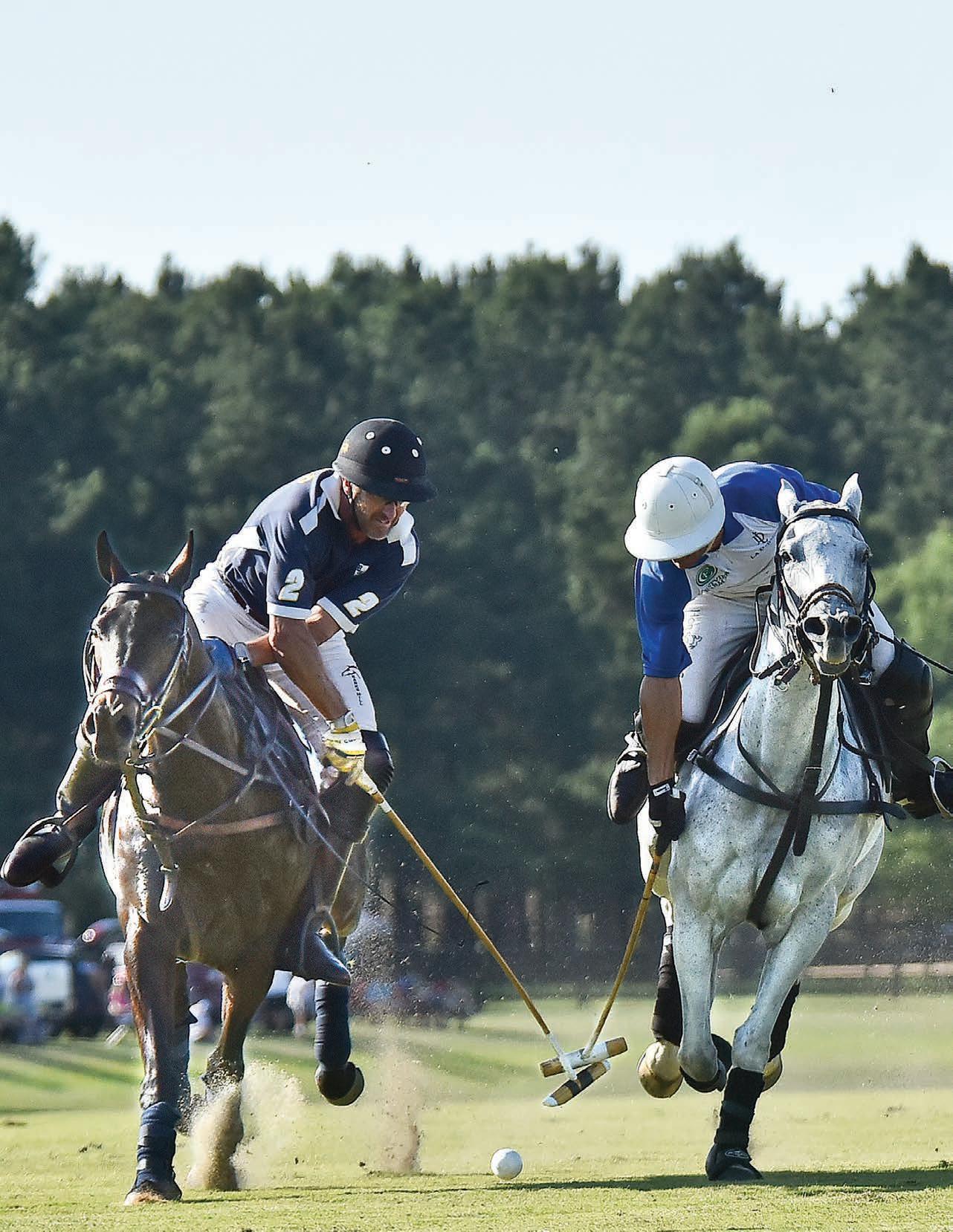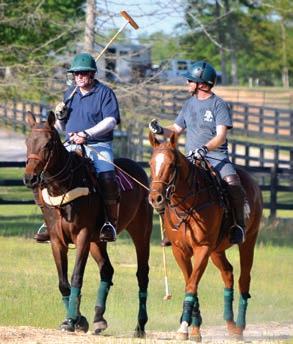
4 minute read
From Argentina to Aiken
By Katie Roth Photos by Shelly Marshall Schmidt, Oh Schmidt Productions
Hugo Lloret grew up on a farm in Marcos Juárez, Córdoba State, Argentina, where his family raises Aberdeen angus cattle. Becoming a farmer would have been a natural career path for Hugo, but a future as a professional athlete would become reality instead.
Advertisement
But, if you had asked Hugo, he would have said he would play soccer, not polo. Although Hugo learned to ride and play polo as a youngster (his father held regular polo practices at the farm), the game of soccer was his first love. He was heading toward a career as a professional player, but a back injury forced him to rethink his future. Soccer took a backseat and he continued to play polo as he attended college.
Hugo attended law school in Argentina for five years and needs only one more year to complete his degree. Hugo chose to attend Universidad Nacional de Cordoba, a public university. “Public universities are well known in Argentina for being difficult and I love to take on a challenge,” he said. Although he studied hard at school and earned good grades, his head was always in polo and he began to travel more and more to play as a professional. “My mom would love for me to finish my law degree,” said Hugo, “and one day I plan to go back and do so.”
Hugo Lloret first visited Aiken in fall 2014, when he played for Alan Meeker and the Crestview Genetics team. He could have stayed anywhere in Aiken, but he chose to rent a house in New Bridge and keep his horses here. “New Bridge reminds me of home”, said Hugo. “My family enjoys the beautiful scenery, inviting atmosphere, and friendly people at New Bridge,” he said. Hugo likes to play in the United States, especially when his wife Silvana and daughter can join him. Three-year-old daughter, Catalina already loves horses – who knows, she may have a future in horses as well?

The 4-goal player returned to New Bridge in spring 2015 to once again play for Crestview Genetics. The team enjoyed a successful season, winning the Pete Bostwick Memorial 12 Goal Tournament where Hugo was awarded MVP.
Hugo is very invested in his polo career. He is a hands-on manager, overseeing the daily care and feeding of his horses. He researches different types of food, wanting to give his equine partners the best diet possible and tailors fitness plans to allow them to reach their full potential as athletes.
“It takes many things to become a successful polo player. Not only do you have to be an athlete, you need good horses that you must maintain a partnership with. I am constantly learning and trying to improve my skills as a player,” he said.
Hugo takes his responsibility with his sponsors very seriously. Sometimes he brings horses for sponsors to play and likes to ride the horses himself to make sure they are prepared correctly to succeed in tournament play. “I like to match the horse to my sponsor’s skills. It is very important to me to have the trust of my sponsors – many of them have become my friends,” he said.
Hugo’s teammates and opponents will tell you that he is a great defender and attacker on the field, but he also has a knack for developing chemistry among team members. “It takes a couple of games to get a connection going as a team,” he said. “You have to know each player’s strengths and weaknesses and plug them into the right place on the team.”
Hugo prefers small, light, fast horses in his string. He also believes that any player or sponsor should be able to ride his horses, so he trains them in a manner that makes them eager to play and fun to ride.
Hugo enjoys all of his horses, but there are a few that stand out, including Tramposa, Lanza and Rubia. Tramposa is out of Trampta, Hugo’s mare at home in Argentina. He and his father have a breeding operation where they raise 15 to 20 horses each year. The only boy with two older sisters, Hugo has always helped his father with the family farm and continues to do so, even long distance. He is on the phone daily to his father in Argentina, discussing farm operations. From cattle to over 130 horses, he stays engaged in the family business. Hugo tries to visit home at least twice a year. Ultimately, Hugo knows at some point in his life he will go back and manage the family farm. But, until then, he will enjoy seeing where his polo career takes him.













